On The Record with Augusto Otero, Captain, Peruvian Men’s Water Polo Team
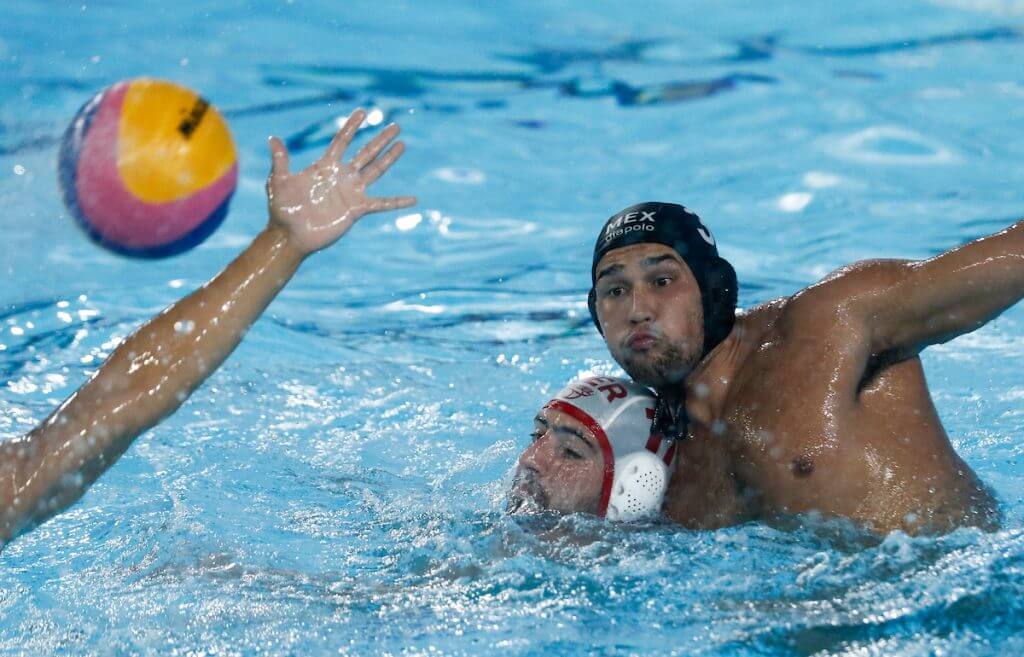
LIMA, PERU. In a country with virtually no history of water polo success, Augusto Otero is an important and influential outlier for Peru. Stumbling on the sport when he was 11, Otero has persevered, rising quickly to become captain of his country’s national team at the young age of 22.
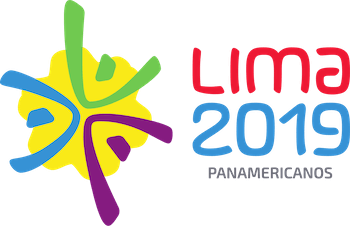 Peru couldn’t have a better ambassador for a sport that has taken a major step forward at the 2019 Pan American Games—which is being contested in Lima. With thousands of athletes from 41 countries throughout North and South America participating in 39 sports, the Pan Ams represent the epitome of athletic competition in the Americas. It’s therefore an important platform for the sport to flourish in Peru.
Peru couldn’t have a better ambassador for a sport that has taken a major step forward at the 2019 Pan American Games—which is being contested in Lima. With thousands of athletes from 41 countries throughout North and South America participating in 39 sports, the Pan Ams represent the epitome of athletic competition in the Americas. It’s therefore an important platform for the sport to flourish in Peru.
It’s going to be a while for Otero and his Peruvian teammates—as well as a nascent women’s team whose average age is under 18—to be competitive. In three matches played through the first few days of the tournament, Peru’s men have been outscored 40-16 while their women have scored eight goals to their opponents 69. Predictably, they’ve lost all six of their matches in group play.
[Double Dip for USA Men’s, Women’s Water Polo: Group A Winners at 2019 Pan Am Games]
Thursday at the Villa Maria del Triunfo Aquatics Complex they face the tournament’s two gold medal favorites, the American men and women, in knockout matches for the semifinals. There’s no possibility that Peru will be competitive in either of these games, but Otero, who has represented his teams in tournaments in both the U.S. and Europe, is thrilled just to have the opportunity to compete and represent his country.
In a series of interviews both prior to and during the Pan Ams, the Peruvian captain spoke to Swimming World about his love for polo, the prospects for gaining experience against some of the world’s best teams and how exciting it is to represent his country playing the sport on the hemisphere’s biggest sports stage.
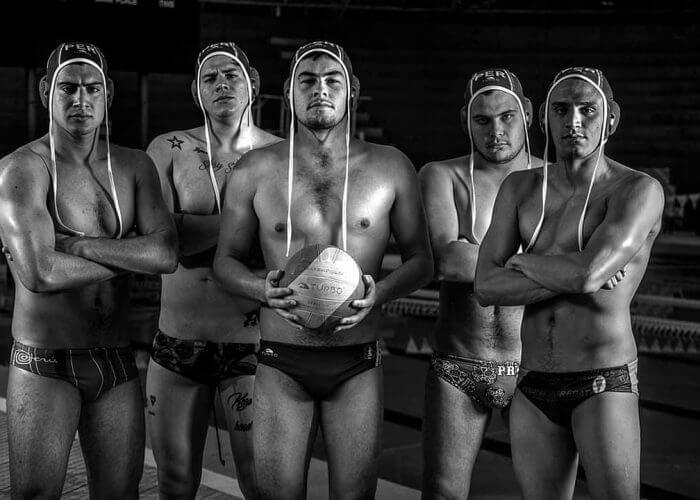
Otero (far left) and his Peruvian teammates. Photo Courtesy: A. Otero
– Welcome to the Pan American Games Peruvian Water Polo!
First time in the PanAm Games we started a little [unfocused] but between the games we’ve been improving and gaining experience. We really wanted to win this game [a 14-8 loss to Mexico]; the loser is going to play against the U.S.—nobody wants to play against them!
We left everything in the pool, we played with all of our hearts. We got behind in the first two quarters, and in the third we started scoring more goals, but the second quarter ended 7-1. It’s really hard to equalize a score [like that].
– Now you face the Americans, which is a thrill but also an extreme challenge for such a young team.
We didn’t want to play the U.S. but at the same time it’s going to be a great experience. The U.S. just finished ninth in the [FINA World Championships]. Being able to play against awesome players is going to be a once-in-a-lifetime experience.
[USA Men Finish Strong at FINA World Water Championships, Beat Montenegro 15-14]
I’m really happy [for that] but on the other I’m really sad because we lost versus Mexico. The fans here were screaming… it felt fantastic! We were motivated and wanted to give them the victory.
– What makes this tournament so interesting is that whoever wins gold on the men’s side and also on the women’s will qualify for Tokyo—except the American women, who are already in for the 2020 Games.
[That] the gold medalist classify to the Olympic Games in Tokyo 2020 makes the tournament even more competitive. We already know that great teams like USA, Brazil, Canada are coming, Argentina, Mexico, Puerto Rico and Peru are participating as well as well. Every team wants to be able to give their best, and some teams have higher expectations than others. But we know how important the Pan American games are, especially for Peru; it’s our first time in the tournament.
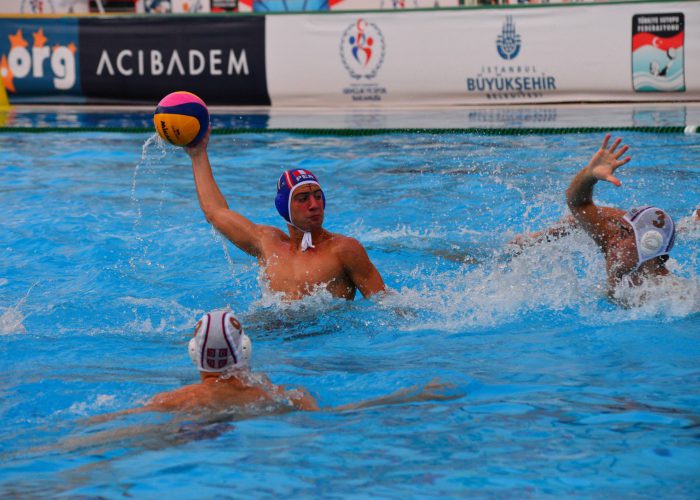
Otero competing for Peru in Fina Junior Worlds. Photo Courtesy: A. Otero
So we want to give our best, achieve our goals as a team and be able to give a good tournament, especially for the people that are going to come to watch—and hopefully make water polo a little more popular.
– How meaningful is this opportunity for your country to play host to such an important sporting event?
It’s a lifetime opportunity to have the Pan American Games here in Lima. The whole country has made a lot of progress and invested a lot in the games. Roads have been closed, all of the tickets have been bought and a lot of people have gone to watch different sports—like English-style rugby—and then it’s an amazing experience to be able to have all the sports [and] all the athletes here in Lima, being able to meet Olympic [athletes] and medalists from different sports and to be with in the Pan Anamericana [the athletes’ village].
It’s a great opportunity for people in Lima who don’t do sports to be able to get an interest in some of them—that will hopefully increase our sports level
– The sport that you compete in is not in the top ranks of ones that Peruvians watch. How did you get involved in water polo?
In Peru there are only four clubs and private schools who play water polo pro. They’re only part-time clubs and water is not like very available here [in Lima].
I got started when I saw some guys were throwing the ball around [in a pool[ and I thought: Oh that looks like a fun sport . That was when I was 11 years old and now I’m 22 years old. So, I’ve come a long way with water polo. I used to [practice] Karate, but I went for water polo because I really liked it and I’ve been able to compete in a lot of tournaments for the Peruvian national team—though this is the first time I get to play in a Pan American game.
I’ve been lucky enough to make that team and they’ve been chosen as captain as well—I am really proud of that.
– You’ve been all over the world for water polo. How important is that the Pan American Games is here in your home town?
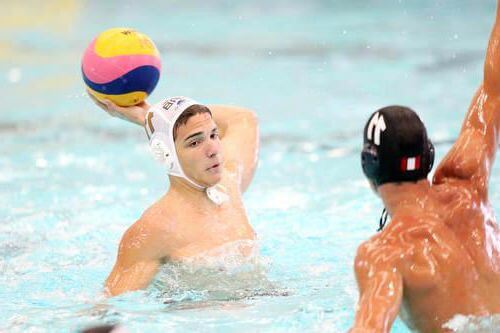
The game is the best teacher. Photo Courtesy: A. Otero
I’ve been lucky enough to go to a lot of places, but [the Pan Am Games] are going to be one of my best opportunities and the best experiences being able to face amazing teams like the U.S. and Brazil. I’ve played with them before but not against the [senior] national teams. Being able to play against teams that are Top Ten in the world, could be a great experience.
It’s really a great opportunity for us to learn from them in water polo. At the same time, we hope they can also learn something us and experience our culture—and try our food. That’s something that we’re really proud of as well. I’m sure that they will have a great time in Lima and hopefully look not only at Peruvian sports but also our culture.
– With the momentum you’ve gotten from this tournament, what will it take for Peruvian water polo to continue to improve?
[The Peruvian government] has built this sports complex, also another sports complex in La Videna for diving and synchronized swimming, and the pool is deep enough for water polo. We have two aquatic complexes which are going to help us increase our level—maybe have more players in Peru. There’s maybe 250 water polo players in the whole country. That’s not many.
It’s really hard to find great players with such a small amount of water polo. Hopefully this [tournament] will help make Peru more competitive and gain more experience.
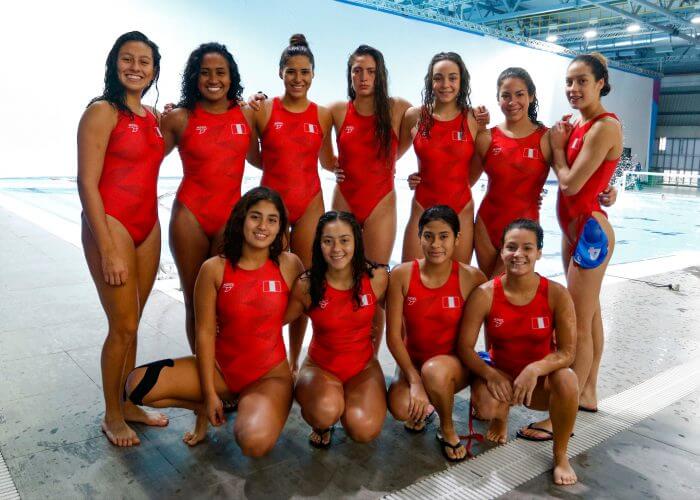
Peru’s national women’s water polo team. Photo Courtesy: Paul Vallejos / Lima 2019
– I was moved by what Nizerrat Gauthier-Asmat had to say about representing her country at the PanAms. It’s a fantastic idea: your country is showing it’s best to the world.
It’s an amazing feeling—playing for Peru, being with my teammates; we’ve been playing for about five years together. Being part of the PanAm games has been an incredible experience—even though the results haven’t been as we would wish them to be.
It’s not only us, it’s all of Peru—it’s great that a lot of people come and see water polo. Probably the fans didn’t even know what water polo is!



